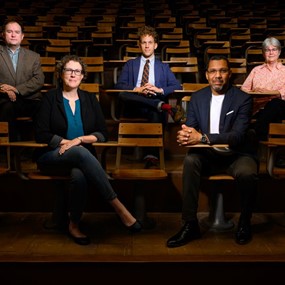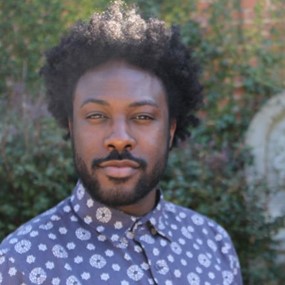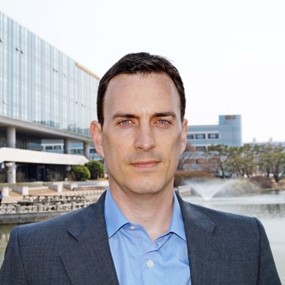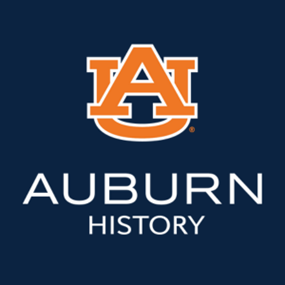Alumni Spotlight: Shaun Armstead '15, Pre-doctoral Fellow at the Carter G. Woodson Institute for African American and African Studies
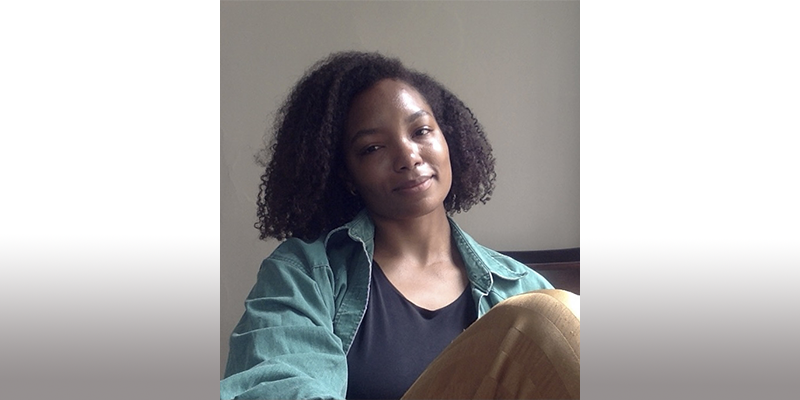
When Shaun Armstead, '15, first arrived at Auburn, she wasn’t interested in majoring in history. In fact, she wanted to be a dermatologist. As a freshman, she majored in chemistry and held a pre-med concentration. Now, she’s a Pre-Doctoral Fellow at The Carter G. Woodson Institute for African American and African Studies at the University of Virginia, a program which supports scholarly research in the humanities and social sciences on topics related to African American, African studies, and related fields. So why did Armstead make the switch to history?
“There were several professors in the history department I enjoyed peppering with questions,” she explained, “I also loved that I could see the real-life application of what I learned in their classes. Subjects previously mysteries to me like politics and economics had real meaning. And, more importantly, I was developing a better understanding of my place in the world. I wanted to learn more and a history major seemed to be the best way to do so.”
Her passion for history led her to apply to history graduate programs, and with the support of the Department of History at Auburn, she was able to gain acceptance into her dream program at Rutgers University. Currently, Armstead’s research focuses on twentieth century black women’s internationalism as she examines their efforts, “to reimagine liberalism to extend beyond the white, often male, liberal subject, to include themselves and everyone else.”
Graduate Research Assistant Grace London speaks with Armstead about her experience at Auburn and her experience as a historian.
Why did you choose Auburn?
To be honest, I selected Auburn purely for pragmatic reasons. I’m not originally from Alabama, so the whole Bama-Auburn thing held little sway with me. In fact, I planned on applying solely out of state. Those plans changed after my mother’s sudden passing when I was seventeen.
Why did you decide on a history major?
I think history chose me. I began undergrad as a chemistry, pre-med major. My dream was to be a dermatologist. After a couple years, I realized that there was only one COSAM professor I enjoyed talking to at length. Alternatively, there were several professors in the history department I enjoyed peppering with questions. I also loved that I could see the real-life application of what I learned in their classes. Subjects previously mysteries to me like politics and economics had real meaning. And, more importantly, I was developing a better understanding of my place in the world. I wanted to learn more and a history major seemed to be the best way to do so.
What were your favorite classes? Why?
There are so many! One of things that I valued about my time as a history major at Auburn was the array of courses. I gravitated toward classes with professors who valued how ideas shaped human interactions and our material world. Some of those courses included Professor McLean’s History of Fascism, Professors Bohanan and Ferguson’s Material Culture, Professor Brooks’s American South since 1877, and Professor Meyer’s Gender and Technology. These courses continue to shape how I understand the world and my research.
How did your history major prepare you for graduate school?
Officially, the history major provided me with a solid introduction to the historian’s craft. I am convinced that it made navigating a PhD program without the benefit of an MA easier. Yet more meaningful to me were the professors who took an interest in my potential. Here I want to single out Professors Bohanan, McLean, and Meyer. These professors gave to me something so special — their time. They met with me in and outside of office hours to discuss school, my anxieties about grad school and speaking in class. They encouraged me to dig deeper, try harder. They supported my numerous applications, writing letters for all of them. Professor McLean even took time during the Thanksgiving break (and her semester leave!) to help me make sense of my senior thesis project, which I had been struggling with the entire semester. With her guidance, I not only completed a senior thesis that I continue to be proud of today, but it also served as the writing sample that got me into my dream program at Rutgers University! Countless thanks to Professors McLean, Bohanan, and Meyer.
Describe your research focus.
I am a twentieth-century historian of Black women’s internationalism. I combine intellectual and political history methods with Black Feminist epistemologies to understand how Black women endeavored to reimagine liberalism to extend beyond the white, often male, liberal subject, to include themselves and everyone else.
What are your future career goals?
My career goals are pretty open, frankly speaking. I hope that I am successful on the market next year. I love teaching college students. It’s rewarding to me to play some small part in young adults’ journeys to figure out who they are independent of their families and friends back home. But I am also pragmatic. Like every other doctoral student in the humanities, I face a deteriorating academic job market. With that in mind, I remain open to all opportunities—academic, alt-academic, and academic adjacent—to utilize the skillset I have acquired.
What will you do as a fellow at the University of Virginia’s Carter Woodson Institute?
The Carter G. Woodson Institute’s generosity provides me the resources to focus the bulk of my attention on completing my dissertation, tentatively titled “Imagined Solidarities: Black Liberal Internationalism and the National Council of Negro Women’s Journey from Afro-Asian to Pan-African Unity, 1935 to 1975.” I will spend the next two years writing remaining chapters and participating in workshops and other Woodson programming with the roster of brilliant fellows and faculty across the humanities who also call the Woodson Institute home.



